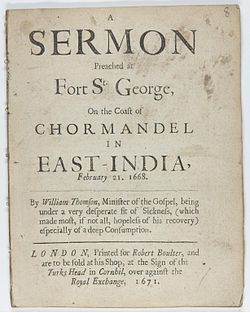From Wikipedia, the free encyclopedia
Contents |
[edit] Etymology
The adverb pamphlet for a small work (opuscule) issued by itself without covers came into Middle English ca 1387 as pamphilet or panflet, generalized from a twelfth-century amatory comic poem with an old flavor, Pamphilus, seu de Amore ("Pamphilus: or, Concerning Love"), written in Latin.[2] Pamphilus's name was derived from Greek, meaning "friend of everyone". The poem was popular and widely copied and circulated on its own, forming a slim codex.In Spanish, panfleto is a brief writing or libel generally aggressive or defamatory. By extension, it is used for political propaganda writings. Not to be confused with the English term pamphlet, from which it derives, as it does not contain the negative connotations of the Spanish word and is translated more correctly as folleto.
Pamphlets can contain anything from information on kitchen appliances to medical information and religious treatises. Pamphlets are very important in marketing as they are cheap to produce and can be distributed easily to customers. Pamphlets have also long been an important tool of political protest and political campaigning for similar reasons.
[edit] Collectibility
Due to their ephemeral nature and to wide array of political or religious perspectives given voice by the format's ease of production, pamphlets are prized by many book collectors. Substantial accumulations have been amassed and transferred to ownership of academic research libraries around the world.Particularly comprehensive collections of American political pamphlets are housed at New York Public Library, the Tamiment Library of New York University, and the Jo Labadie collection at the University of Michigan.[5]



Tidak ada komentar:
Posting Komentar